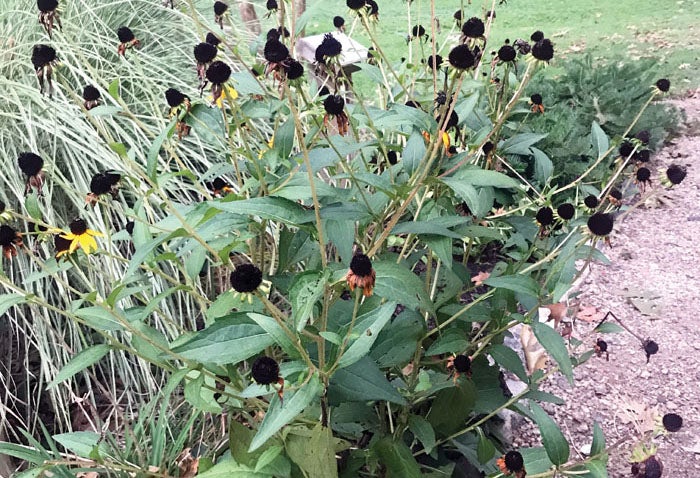Wildlife-friendly fall garden cleanup
Published 12:00 am Sunday, September 12, 2021

- Black-eyed Susans going to seed
By Sarina Dellinger
Salisbury Parks and Recreation
As we move into fall and the summer and wildflowers start to turn brown and produce seeds, think about your local wildlife before cleaning up your garden. It can be easier on you and better for the ecosystem to leave stems and leaves where they fall. If you have clumping or bunching grasses in your yard these can be important food sources, nesting materials and even a hibernation station for birds, insects and small mammals. The previous years’ growth can be used by native bumblebees to overwinter or as nesting material for birds.
You can provide seeds for winter birds such as cardinals, American goldfinches, chickadees and more by leaving the stems of native wildflowers. Many of our solitary native bees rely on hollow stems to burrow into and either overwinter or lay their eggs for the spring. If you can’t leave the stems, consider making a stem bundle and place it in a sheltered location such as an evergreen tree so the birds and bees can still take advantage of these resources.
Another hot topic in wildlife-friendly garden management is leaving the leaves. By raking up leaves from your yard and mulching your tree rings, flower beds, or tree lines you are ensuring that moths, butterflies, and fireflies complete their reproduction cycle. Other types of creatures such as snails, 5-lined skinks, wooly worms and more also depend on leaves to bundle up into during the cold winter months. This practice benefits all forms of native wildlife, including birds who search amongst the leaves to find insects during the winter months. Additionally, it’s best not to chop up the leaves with a lawnmower since many moths and butterflies lay eggs or build cocoons in the leaves.
In the spring when temperatures are consistently above 50 degrees, you can feel free to remove last year’s materials as the inhabitants are likely on the move once more, but leaving them is not detrimental. By leaving these materials to degrade naturally or placing them strategically in your landscape you can reduce the amount of waste that goes to the landfill, lessen your yard work, and provide habitat for our beloved butterflies and other important insects and pollinators.
If you have questions about Hurley Park, how to book events, or what is going on, please give us a call at 704-638-4459, or contact us on Facebook or Instagram @HurleyParkNC. If you would like to donate to Hurley Park, visit our website at salisburync.gov/hurleypark.
Sarina Dellinger is public garden manager at Salisbury Parks and Recreation.



